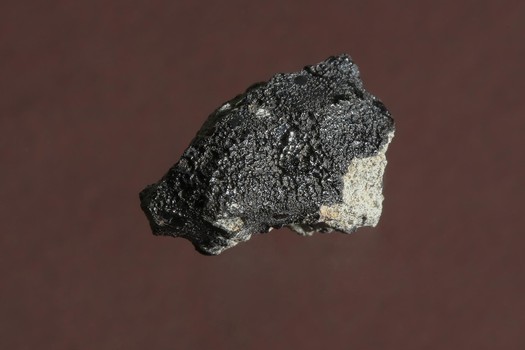The possibility of ancient life on Mars just received an added boost: new analysis of carbon inside a Martian meteorite shows that it is likely of biological origin, according to an international team of scientists from EPFL.
The meteorite, called Tissint, was first found in the Moroccan desert in 2011 and has been the subject of intense interest and speculation ever since. Previous studies had discovered the carbon, but concluded it probably resulted from the high-temperature crystallization of magma. Carbon, as an organic compound, can be formed both biologically and abiotically.
The new studies, by scientists from China, Japan and Germany, take a more detailed look at the carbon within the meteorite, through chemical, microscopic and isotope analysis. Small fissures within the meteorite are filled with the carbon material, which the scientists think was deposited by organic-rich fluids (i.e.. water) at low temperatures on Mars, before the rock was ejected into space by the asteroid impact. They are certain that the carbon is Martian in origin and not terrestrial contamination.
“So far, there is no other theory that we find more compelling,” said Philippe Gillet, director of EPFL’s Earth and Planetary Sciences Laboratory.
One of the key findings was that its ratio of carbon-13 to carbon-12 was significantly lower than the ratio of carbon-13 in the Martian atmosphere. That ratio difference is the same as what is found in coal on Earth, which is known to be biological in origin.
“Insisting on certainty is unwise, particularly on such a sensitive topic,” said Gillet. “I’m completely open to the possibility that other studies might contradict our findings. However, our conclusions are such that they will rekindle the debate as to the possible existence of biological activity on Mars – at least in the past.”
There has been of course some skepticism expressed (such as with the famous Allan Hills 84001 Martian meteorite), and only further studies can hopefully come to a more definitive conclusion.















